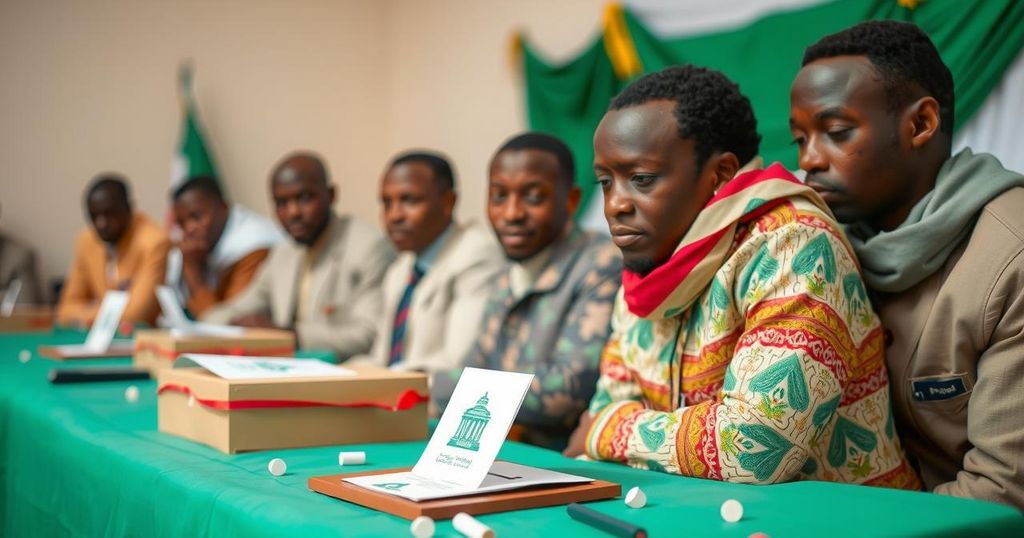Chad Holds Controversial Parliamentary Elections Amid Opposition Boycott

Voting is in progress for Chad’s first parliamentary elections in 13 years, amidst a boycott from opposition parties who claim the results are predetermined. President Deby encourages participation, but reports indicate low turnout in urban areas and allegations of electoral fraud. The election aims to establish political legitimacy following years of military rule.
Voting is currently underway in Chad’s first parliamentary election in 13 years, a crucial step for the government in its claim to end military rule. Citizens are set to elect a new parliament, provincial assemblies, and local councils. However, opposition groups have called for a boycott, arguing that the election outcomes have already been predetermined, resulting in low voter turnout in the capital, N’Djamena, as polling stations opened on Sunday. The government cites that poor weather has contributed to the apathy among voters, while officials boast a record turnout among military personnel and nomadic communities.
The opposition, particularly the Transformers party led by Succes Masra, has expressed skepticism regarding the election’s legitimacy. Masra posited that “the fabricated results are already in the computers,” reinforcing the sentiment that the elections are rigged to secure the regime’s hold on power under President Mahamat Idriss Deby Itno, who assumed leadership following a military coup in 2021.
Despite these claims, President Deby encouraged voter participation, framing this election as a “historic day.” Many citizens, including Patrice Lumumba Deoumoundou, voiced hopes for substantial change, emphasizing the need for improved job opportunities and equitable conditions. Voter participation among different demographics varied, with military turnout reportedly exceeding 72% and 54% among nomads.
Election observers, numbering approximately 100, are monitoring the polling process amid allegations of election improprieties, including claims by the opposition that ballots have vanished. The context surrounding the elections includes persistent violence from Boko Haram in the Lake Chad region and the complexities of international relations, notably the end of a military accord with France. The government presents these elections as the final phase in a transition towards democracy following decades of authoritarian rule under Deby’s father.
Chad, one of the world’s least developed nations, has been under military rule since the death of former President Idriss Deby in April 2021. His son, Mahamat Idriss Deby Itno, leads the transition government. Elections were initially promised as part of a roadmap to democracy; however, opposition claims of prearranged results compound public skepticism about the electoral process. The current parliamentary elections are significant as they aim to establish a formal legislative body after a long hiatus that has raised concerns about political representation and governance in Chad.
In summary, Chad’s parliamentary election unfolds against a backdrop of political tension, boycotts, and external threats. While the government frames the election as a move towards democracy, significant opposition skepticism and allegations of electoral malpractice persist. The outcome remains crucial not only for Chad’s internal political landscape but also for its relationships with international partners and stability in the broader region.
Original Source: www.aljazeera.com






